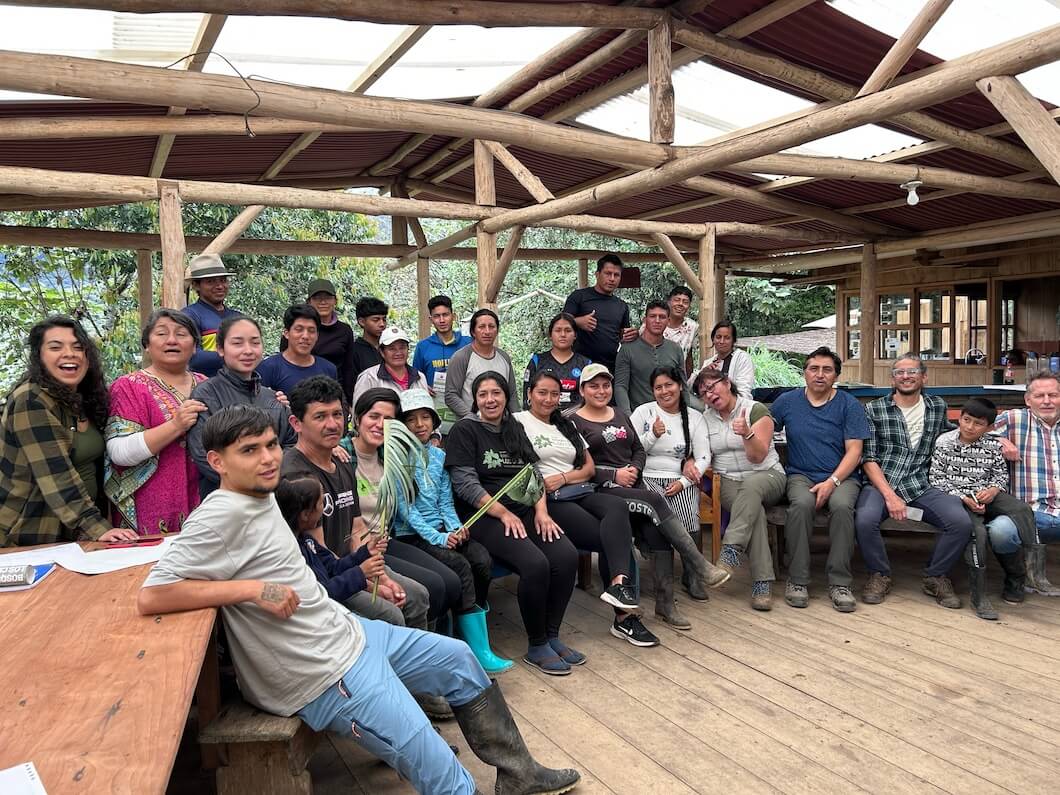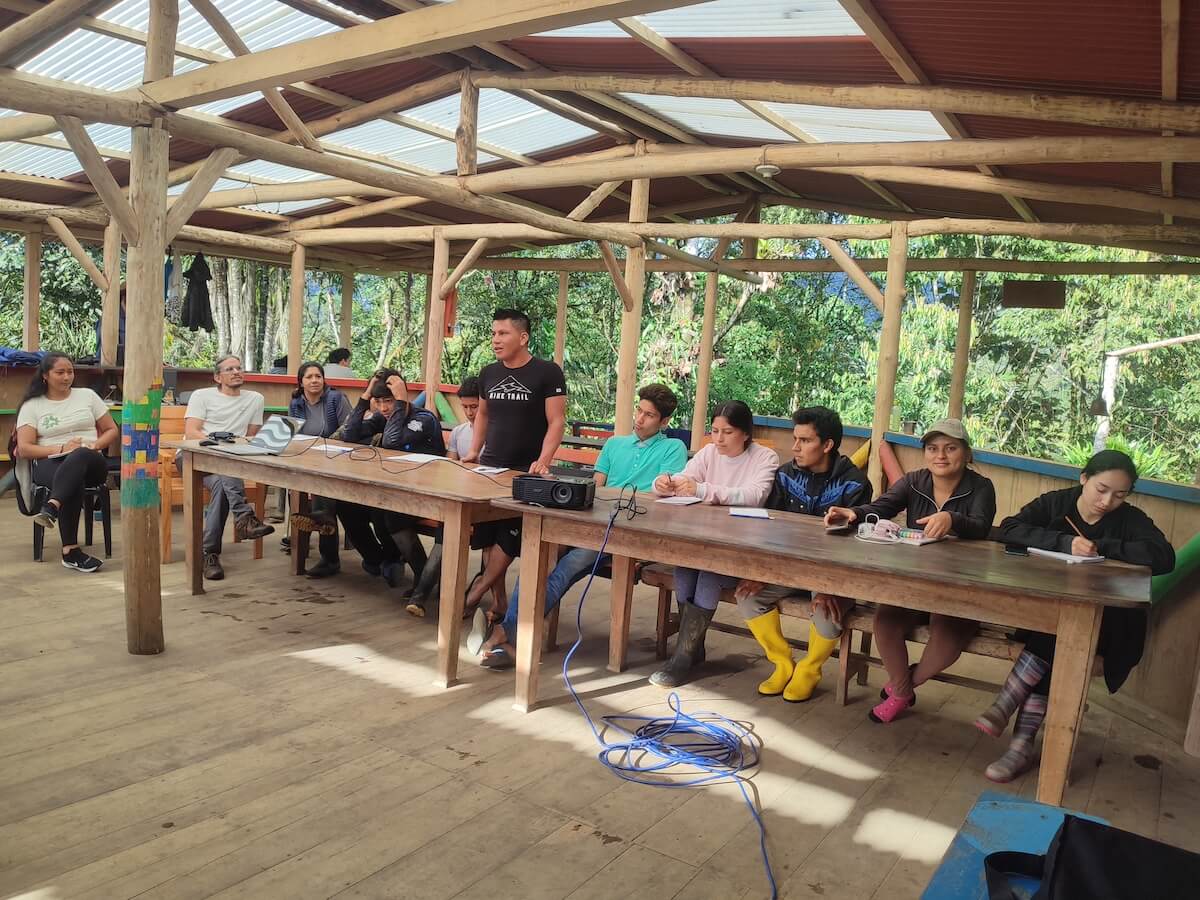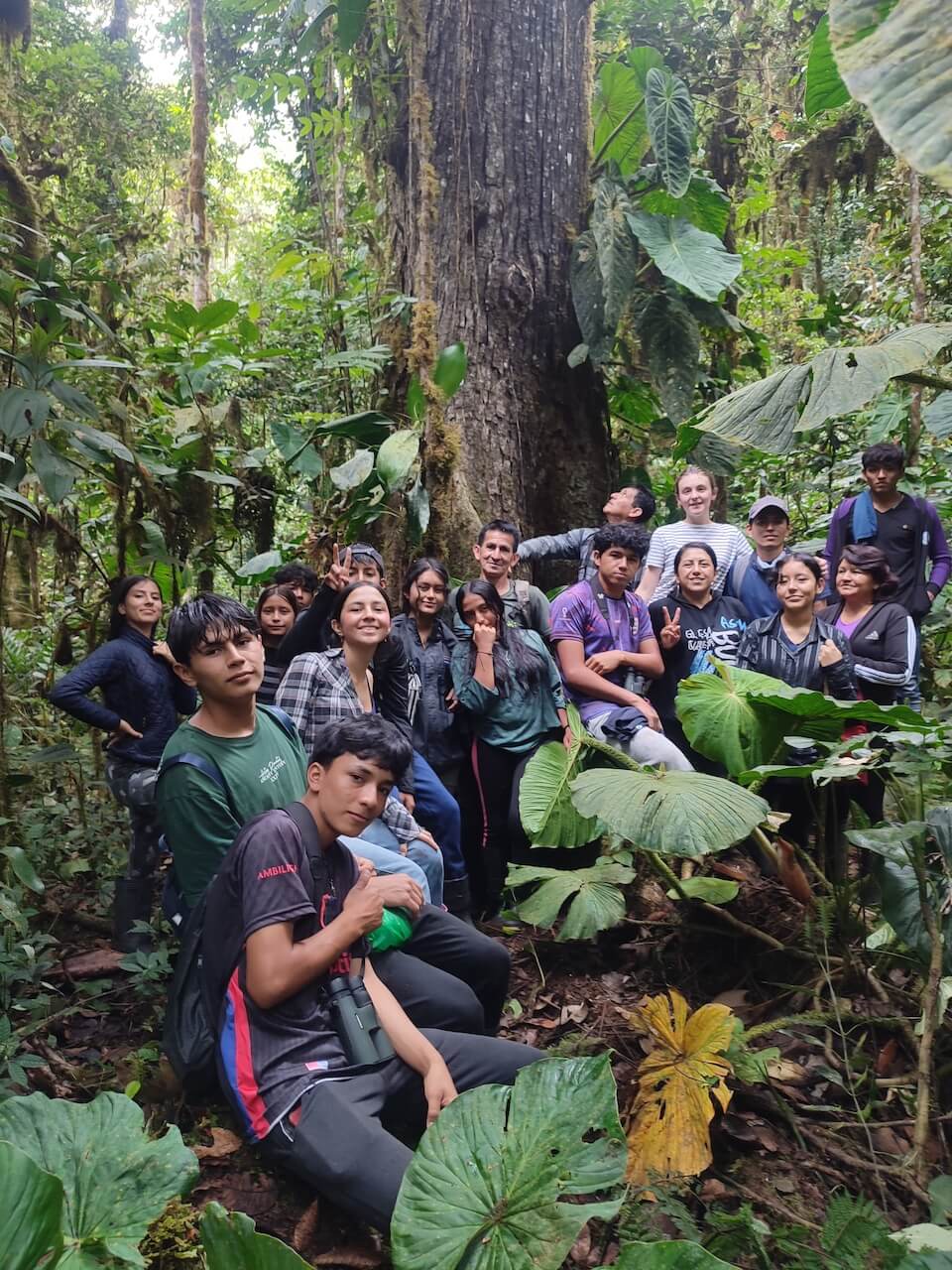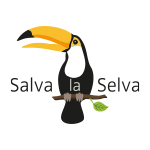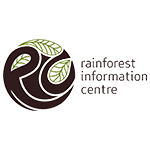by Jose Cueva
Share
Representatives from the Los Cedros Forest communities visited Yunguilla to learn about sustainable development, organization, and collective hope.
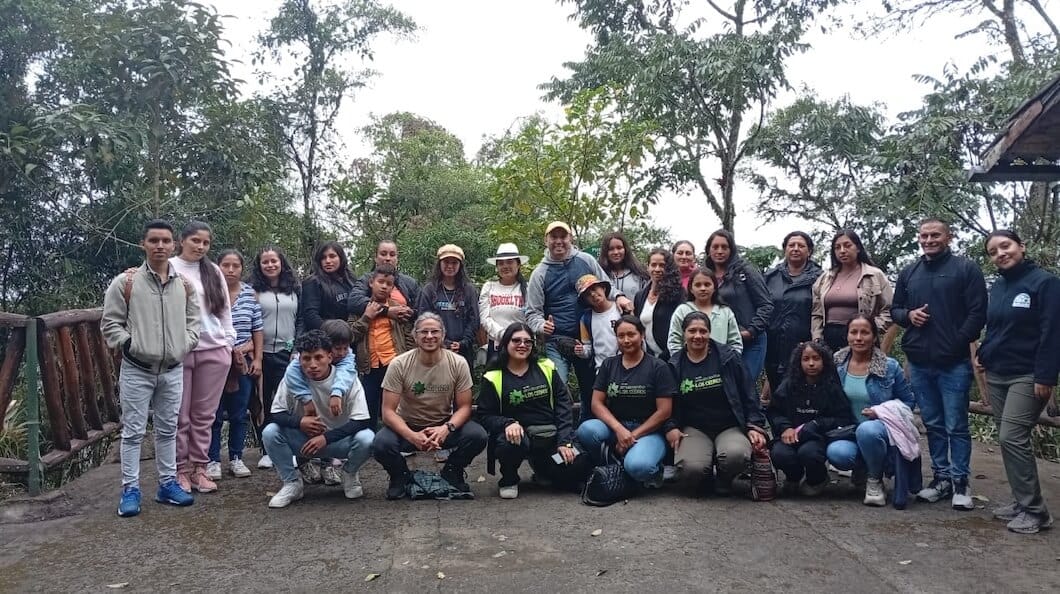
Introduction: A journey to learn from experience
Saturday, October 25th marked a milestone for the communities of the Los Cedros Protected Forest Area of Influence, who traveled from Manduriacos to the community of Yunguilla, in northwest Quito, for a transformative exchange of experiences.
This tour was organized by CIPBAT within the framework of the project “Preparing civil society for co-management for the care and protection of the Los Cedros Protected Forest,” financed by Fundación Futuro and Critical Ecosystem Partnership Fund (CEPF).
The event was supported by the Imaymana Foundation, within the framework of the Chocó Andes Network Alliance Cooperation, and with the participation of Inty Arcos, who shared the achievements of the socio-political governance process of the Chocó Andino.
More than a technical trip, it was a meeting of territories that share the same spirit: protecting the forest, strengthening the organization, and dreaming of a sustainable future.
Yunguilla: Three generations building a sustainable lifestyle
The Yunguilla community is an inspiring example of sustainable community development. More than 30 years ago, its residents decided to abandon logging and extensive livestock farming, to instead invest in conservation, community tourism, and agro-ecological production.
Today, three generations have grown up within the project, consolidating a self-management process without relying on large external funds.
The entire community participates actively: they produce cheeses, jams, and handicrafts; manage lodging; maintain the trails; and promote environmental education.
The result is a model of well-being based on cooperation, organization, and education, where the youth are leading the way and the forest is the heart of community life.
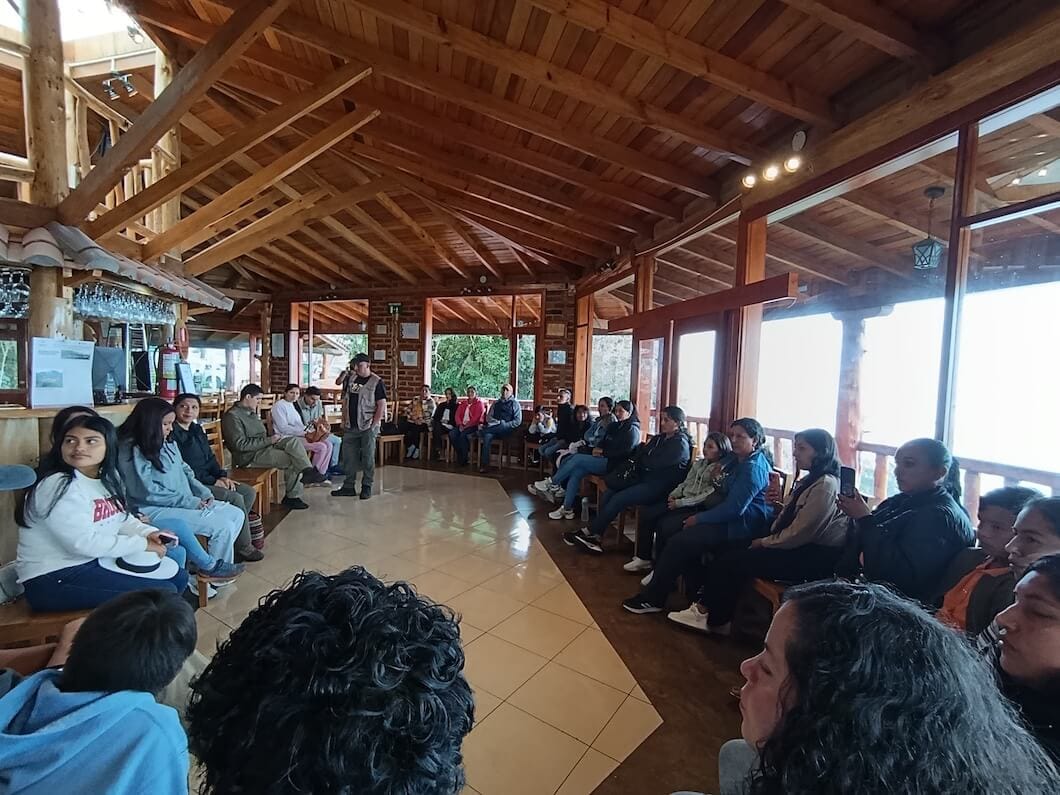
Lessons from perseverance and collective work
During the day, Yunguilla’s leaders shared with the visitors lessons they’ve learned. They explained that their success wasn’t built overnight, but rather through years of patience, dialogue, and collective commitment.
The pillars of its model are clear:
- Strong community organization, with decisions made in assembly
- Economic self-management, reinvesting income in education and well-being
- Permanent environmental education, guaranteeing generational renewal
These teachings inspired the communities of Los Cedros, who recognized Yunguilla as a possible and local example. As one participant said:
“If they could do it with organization and unity, we can do it too.”
Manduriacos and Los Cedros: Territories with enormous potential
The Los Cedros Protected Forest Area of Influence encompasses ten rural communities in western Imbabura, in the Manduriacos Basin. It is a region of great biodiversity, with mountains, rivers, and cloud forests that protect species unique to the Andean Chocó.
Despite historical challenges—isolation, poverty, and extractive pressures, the area maintains a strong sense of identity and social organization. Through co-management of the Los Cedros Protected Forest, communities work on environmental education, biodiversity monitoring, territorial control, and ecosystem protection.
The exchange with Yunguilla reinforced the idea that conservation can become the driving force of local development, bringing together sustainability, culture, and a solidarity economy.
The experience of the Andean Chocó: governance and citizenship
During the visit, Inty Arcos, a representative of the Andean Chocó process, shared with the participants the achievements made through territorial governance and social organization.
His account showed how, through partnerships between communities, local governments, and organizations, the Andean Chocó managed to strengthen its autonomy and obtain recognition as a UNESCO Biosphere Reserve.
This testimony inspired visitors to imagine a similar process in Manduriacos and Los Cedros: building a community co-management model that combines conservation, entrepreneurship, and citizen participation.
“The power of a community lies in its ability to decide its destiny. And that strength is born from unity and trust,” Arcos said.
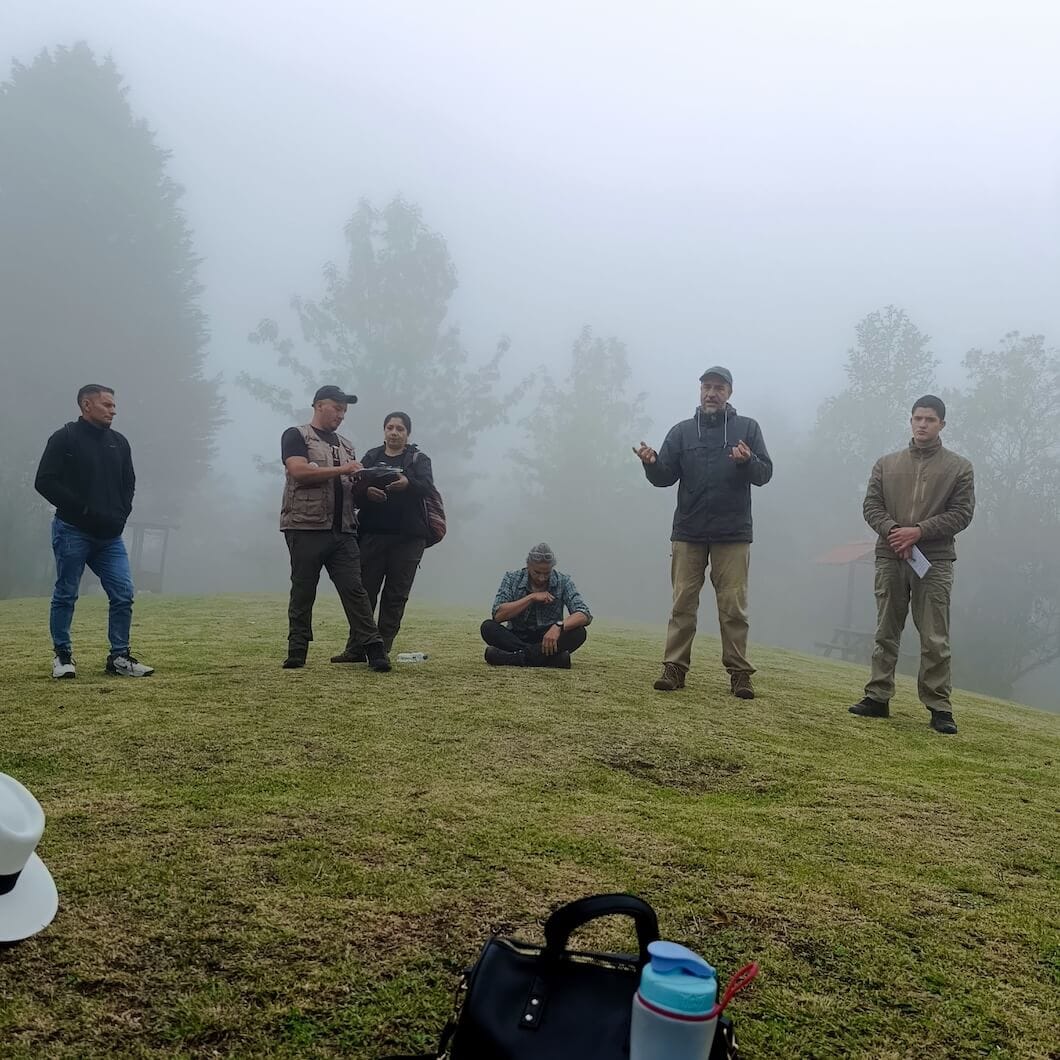
Youth and women: the soul of change
One of the aspects most admired by the visiting communities was the comprehensive participation of women and youth in Yunguilla.
Women lead food production, youth are responsible for administration and communication, and elders transmit ancestral knowledge.
This intergenerational cohesion guarantees the project’s continuity and demonstrates that sustainable development is not only economic, but also cultural and human.
At Los Cedros, leaders agreed on the importance of strengthening these roles by promoting training, leadership, and environmental education to build an inclusive future.
Community tourism and sustainable production: paths to autonomy
The visiting group confirmed that Yunguilla’s success lies in the diversification of its economy.
Community tourism is complemented by agro-ecological production, creating a stable and self-managed model.
The visitors recognized that Manduriacos and Los Cedros have ideal conditions to develop similar initiatives:
- Abundant biodiversity
- Rural farming tradition
- Unique landscapes and growing social organization
The most important lesson learned was that it’s not about copying the Yunguilla model, but rather adapting it to the local context, with its own identity and respect for the culture of the territory.
Words that stayed in the heart
At the end of the meeting, we held a reflection circle in which each participant expressed a word that summarized their feelings.
The voices intertwined in a list filled with emotion and purpose: sustainability, hope, gratitude, learning, wonder, planning, integration, family, experience, and strength in numbers.
These words were more than conclusions: they became personal and collective commitments.
The group returned with the certainty that change begins from within, with organization, love for the land, and a shared vision.
From inspiration to action
The exchange didn’t end in Yunguilla. Back in Manduriacos, the participants agreed to begin a community planning process inspired by what they had learned:
- Strengthen the structure of tourism, production, and education committees
- Promote youth and female leadership
- Create small pilot projects for sustainable ventures
- Divvy actions out between the ten communities in the area of influence
Thus, the visit became a starting point towards a new stage of organization, learning and collective action.
Conclusion: Sowing the future from the forest
The exchange trip to Yunguilla was not just a trip, but a meeting between two territories that share the same vision: preserving life and building well-being from the forest.
Yunguilla demonstrated that sustainability is possible when the community is at the center of decision-making. Los Cedros and Manduriacos returned with renewed hope and a shared conviction: unity and planning can transform the territory.
Organized by CIPBAT, with the support of Fundación Futuro, CEPF, and the participation and support of Fundación Imaymana within the Chocó Andes Network Alliance, the experience left a lasting impact on the hearts and minds of the participants.
Today, the communities of the Los Cedros Protected Forest know that the path to a sustainable future is not far away: it begins with unity, work, and gratitude.
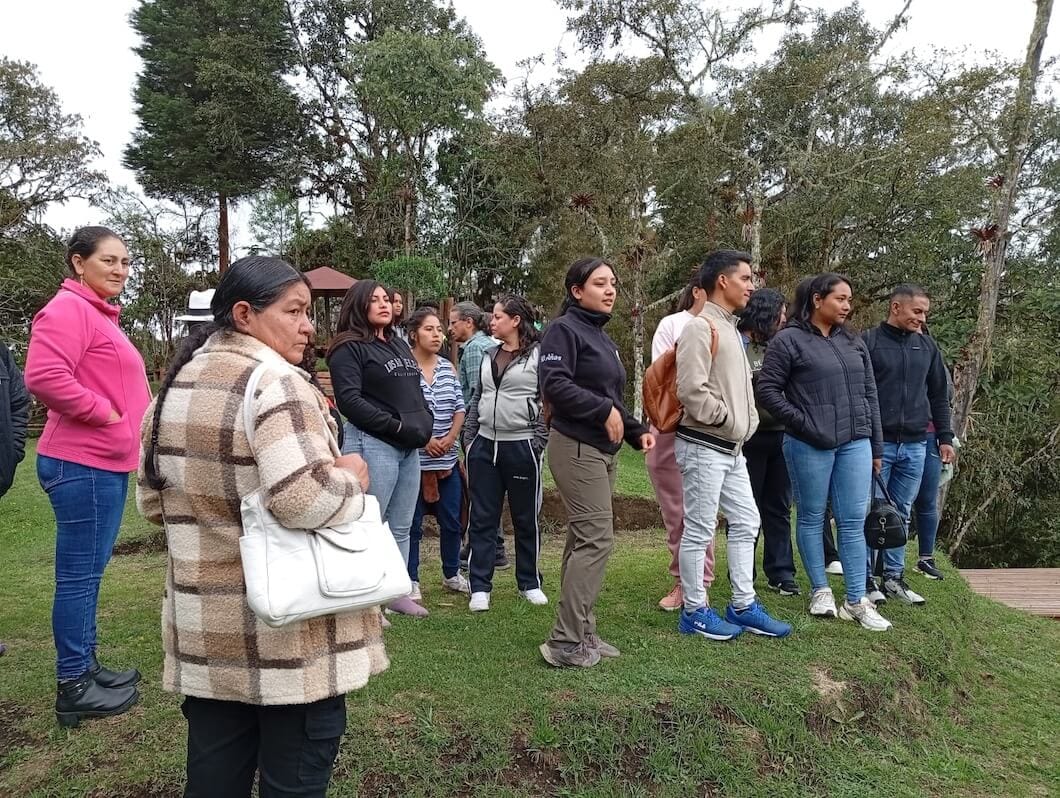
Related post
Within the framework of the Project “Preparing Civil Society for the Co-Management and conservation of the Los Cedros Protected Forest – KBA ECU 14” financed by the Critical Ecosystem Partnership Fund (CEPF), we held the introductory workshop on the Birds of the BPLC (KBA ECU14) and of Ecuador in March as part of the forest […]
Twenty community members from the Valle de Los Manduriacos, who are training to be forest rangers, participated in the territory and participatory mapping workshop held in March. The workshop consisted of two phases: the first focused on political mapping, led by José Cueva, a member of the CIPBAT team, and the second on social mapping […]
In February, the second phase of the Community Forest Ranger Training Program began, with 10 young adults from last year’s program joined by 10 new young adults from the communities surrounding the Los Cedros Protected Forest, including Brillasol, Magdalena Alto, Chontal, Magdalena Bajo, Pueblo Unido, Paraíso, Río Verde, Villaflora, and Cielo Verde. Each council received […]
In this post, we’d like to share with you a preview of the work we’ve been doing throughout this year to promote conservation and love for the Los Cedros Protected Forest (LCPF), together with the communities of the Manduriacos Valley. Our organization, the Corporation for the Investigation and Protection of the Tropical Andes’ Forests (CIPBAT […]

